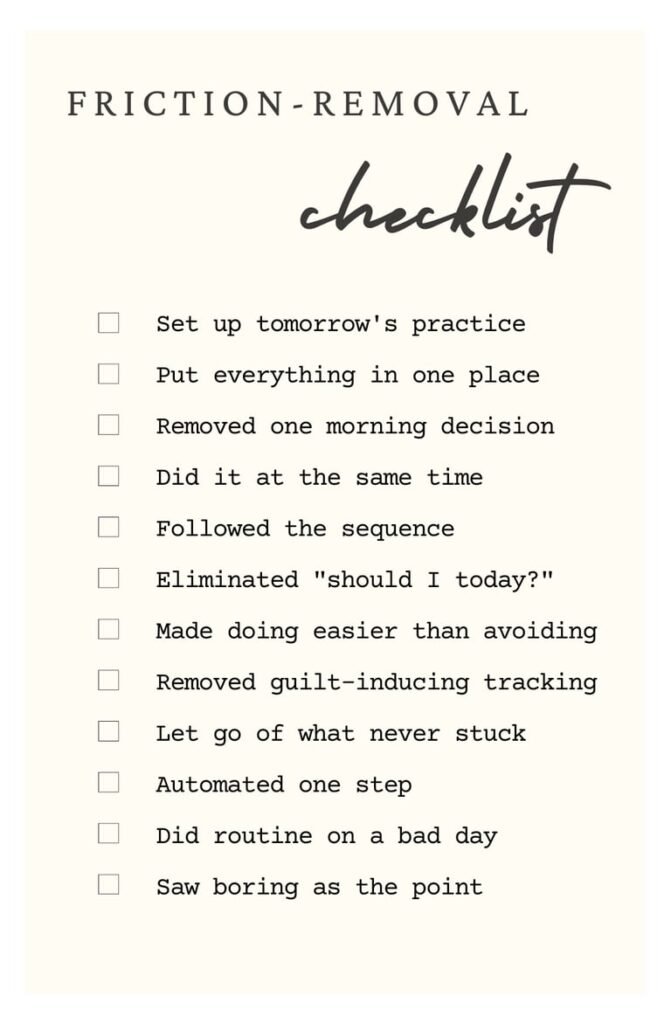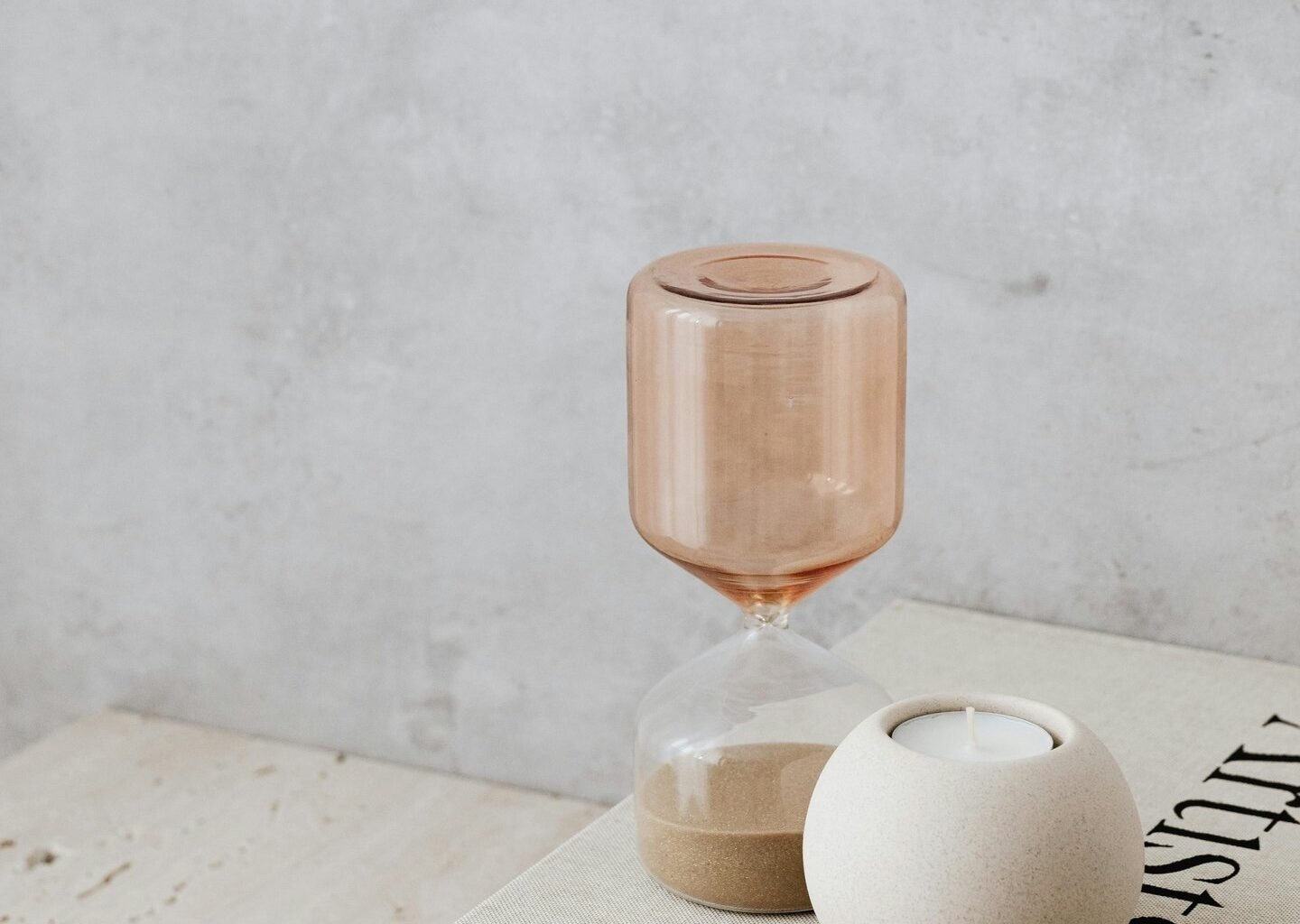You’ve done this before. Multiple times. Started strong, felt optimistic, maintained it for three weeks, then slowly let it slip until you weren’t doing any of it. Felt guilty. Waited a bit. Started again with renewed commitment. Same pattern. Different month.
The problem isn’t your commitment. You genuinely mean it every time you start. The issue isn’t the practices themselves. Meditation helps, journaling helps, moving your body helps. The pattern is the problem. You build routines that need motivation to survive, then hate yourself when motivation inevitably fades.
This is different from being burnt out, overwhelmed, or starting fresh. You’re not depleted. You’re not drowning in decisions. You know what helps. You’ve done the research, tried the things, know they work. They just don’t stick. (If you’re not sure this is your situation, read the main guide.)
The Actual Problem (Not the One You Think)
Your routines have too much friction. Every step requires a decision, effort, or obstacle. Each friction point is small. Finding your trainers, remembering if you meditated yesterday, choosing which journal prompt to answer. None of them feel significant. Cumulatively, they’re why nothing maintains.
When you’re motivated, you power through friction. When you’re not, friction stops you completely. The solution isn’t more motivation. It’s removing friction until the practice is easier to do than avoid.
Tom tried meditation for years. Started, stopped, restarted. Felt like he was failing at something that should be simple. The friction: deciding when to meditate, finding somewhere quiet, choosing a guided meditation, timing it, remembering if he’d done it. When he finally put his meditation cushion next to the coffee machine with a timer preset to five minutes, it stuck. Not because he became more disciplined. Because doing it became easier than walking past it.
The Part That Feels Like Giving Up (But Isn’t)
Some habits won’t stick because they’re not actually yours. You adopted them because they worked for someone else, sounded good, seemed like what you should want. Your body doesn’t want them.
Maybe you hate morning routines because you’re not a morning person. Maybe meditation makes you anxious rather than calm. Maybe journaling feels performative no matter how private you keep it. Maybe running hurts your knees and you only do it because it’s supposed to be good for you.
Sometimes things don’t stick because they shouldn’t. Not every wellness practice serves every person. Letting go of what doesn’t fit isn’t failure. It’s accuracy.
The stuck pattern breaks when you stop trying to make unsuitable things stick and focus on removing friction from things that actually serve you. (Not sure if these are your practices? Try starting fresh with basics.)
What This Looks Like Daily
Wake up. Morning practice happens automatically because everything is already set up from the night before. No decisions. No motivation required. Just sequence.
Move through the day. Evening routine is cued by time, not by remembering. When 9pm arrives, the routine starts. Same every day. Boring is the point.
Track nothing unless tracking serves you. Most tracking is friction disguised as accountability. If you need to see progress, track. If tracking makes you feel guilty on hard days, stop.
This fails if you’re burnt out and need rest, not routine-building. (Check if burnout is your situation.) If you’re overwhelmed, you need to remove volume before automating. (Read about cutting noise.) If you’re starting fresh, you haven’t built enough yet to understand what friction you’re facing. (Begin with basics first.)
When Patterns Finally Break
You’ll know it’s working when you do the thing on bad days. Not because you felt like it. Not because you were motivated. Because it was easier to do than to navigate around not doing it.
Motivation becomes irrelevant. The practice happens whether you want it to or not. That’s not discipline. That’s design.

Dealing with something else? Check out: Self-Care When You’re Burnt Out | Self-Care When You’re Starting Fresh | Back to main guide
Your routines don’t need more motivation. They need less friction.
